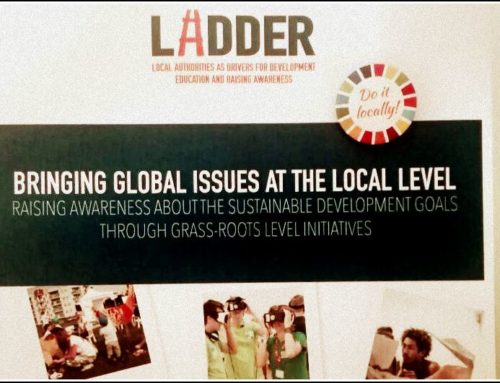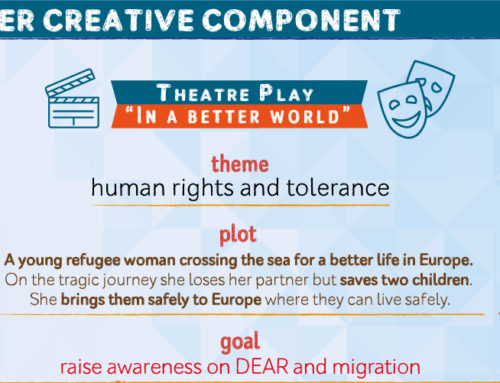Within the LADDER project, the 10 Co-applicants – EGTC Amphictyony (Greece), LALRG – the Association of Local and Regional Authorities (Latvia), Donegal County Council (Ireland), TECLA – Associazione per la cooperazione transazionale, locale ed europea(Italy), URC Poland – Union of Rural Communes of the Republic of Poland (Poland), UTC Slovakia – Union of Towns and Cities of Slovakia (Slovakia), Birgu Local Council (Malta), NAMRB – National Association of Municipalities in the Republic of Bulgaria(Bulgaria), Municipality of Vejle(Denmark) and CAC – Croatian Association of Counties (Croatia) – are in charge of implementing local and national trainings on DEAR (Development Education and Awareness Raising) in their respective countries.
A large number of these trainings already took place all around Europe. In total around one thousand participants attended the different two-day trainings. 45 trainings – 16 at national level and 29 at local level – have been implemented on issues related to development education, empowerment of local authorities and civil society organizations, raising awareness and engaging citizens in global issues, improving methods in non-formal education.
These trainings especially aim to familiarize participants with values of LADDER project and the rationale behind it, as well as with the DEAR approach and its possible implementation at grass roots level, with the intention of building a network of social links that contribute to meeting SDGs at local level.
The trainings were organised around different activities, such as ice-breakers, workshops, open discussions, team plays, etc. and were sometimes the occasion to develop innovative training materials, such as the educational board game elaborated by URC Poland, that was created in order to ensure that the content of local trainings could have been both attractive and informative.
All trainings were implemented in the second half of 2015 and all along 2016. 11 additional local trainings and 4 national trainings will take place before the end of the year.
Thus, once all national and local trainings are implemented, participants will be approximately 2600 people.
Besides, 2 focus groups have been successfully held by Category A co-applicants. 8 focus groups will be organized by the end of 2016, which will be attended by a total of 200 participants. These focus groups will consist in informal groups of discussion that will reflect on development education, especially debating on approaches, methodologies and tools that are used or can be developed at national/local levels. These events will also provide an accurate picture of the DEAR situation at a national and local level in the 10 countries involved, and will bring to the drafting of recommendations to improve the implementation of DEAR strategies in the country concerned.








Leave A Comment